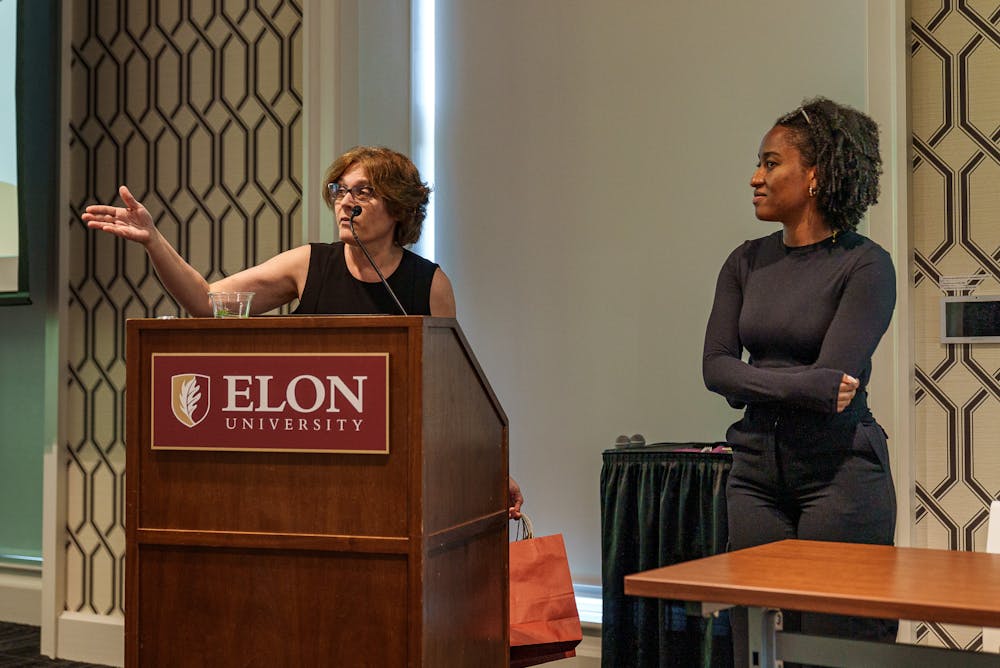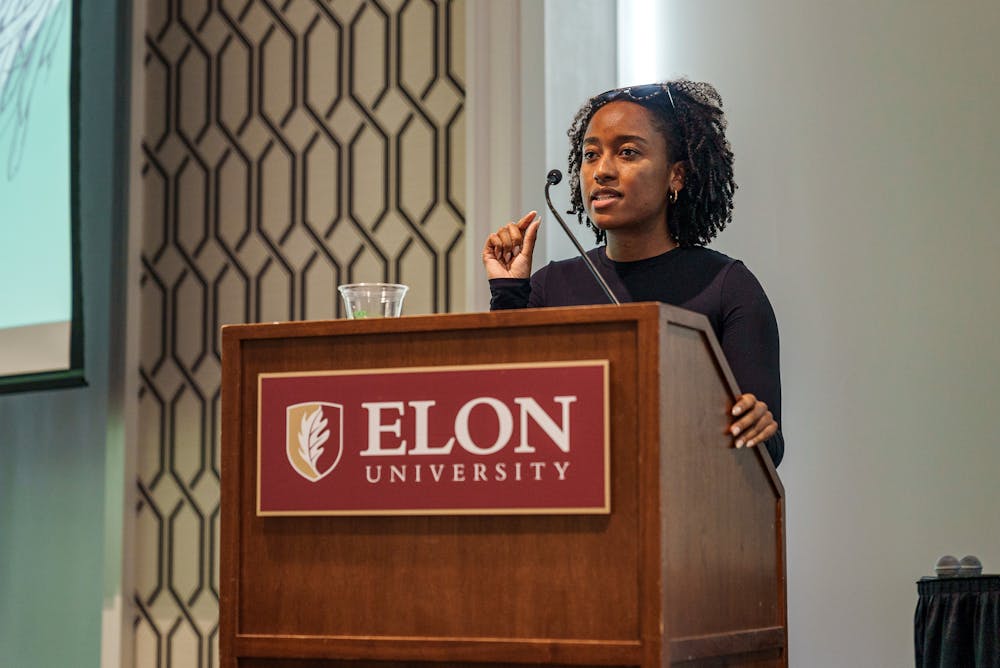Elon University alumna Yasmeen Lee ’20 spoke to the Elon community about “food equality” and the historical inequities of the North Carolina food system as part of the Data Nexus “Powerful Women in Data” series. The event in LaRose Commons on Sept. 19 highlighted Lee’s work with the Food Insight Group focused on qualitative community-based research that examined how diverse communities engage with food production.
“When you step back and realize that every data point is actually a person and not just numbers in a sheet, it gives you a different perspective of the work you're doing and why you're doing it,” Lee said during the event. “When we’re collecting information, those folks, even if we have their voice, they’re not at the table. It’s our job to make sure we’re telling the right stories.”
Lee highlighted Food Insight Group’s “12 Community Insights for a North Carolina That Does Food Differently” project completed in 2021. Sixty five participants across North Carolina participated in focus groups that surveyed personal experiences with food production and consumption. Lee mentioned that the majority of counties in North Carolina are rural and have a history of cotton and tobacco cultivation, before becoming the No. 1 producer of sweet potatoes in the nation.
“It is not our job to be persuasive and tell communities what they should do,” Lee said. “It’s very generational. Oftentimes in older generations, who are farming, are leading to retirement age. The youth of North Carolina are sometimes interested in farming.”

Lee’s perspective on food security is what piqued senior Jillian Thomas’s interest during the discussion. As an honors fellow, she is required to conduct research for two years — similar to Lee’s experience being in the same program, as well as being a Lumen scholar. However, as a mathematics major, Thomas said she mostly focuses on quantitative data.
“She focuses on calling it food security as opposed to food insecurity,” Thomas told Elon News Network. “I think it’s really interesting, especially doing qualitative research, making sure that you know your phrasing and that you’re promoting the right sort of mindset to get responses to be productive for your research.”
Data Nexus is part of Elon’s quality enhancement plan that focuses on data competency, according to program director Crista Arangala. The program educates students on data literacy, foundational statistical competency and advanced data competency. This year’s theme is “Data in Your Local Community.” Data Nexus is hosting a food drive until next Tuesday, Sept. 24 to provide access to healthy food for local communities through food banks. Boxes are located at Duke, LaRose and the Psychology and Human Service Studies buildings.
“Yasmeen is a really good example of our alumni who really embraced the local community,” Arangala said. “We wanted to highlight qualitative data. We knew she would be an excellent example of an alumni who has served our community and could highlight the importance of qualitative data.”

Director of Data Nexus Crista Arangala makes a few announcements after Yasmeen Lee's speech on Sept. 19 in LaRose Commons.
As an Elon student, Lee’s research focused on Black maternal breastfeeding, but she pivoted to policy work when completing her Master’s in Public Health with a concentration in health policy at UNC-Chapel Hill. Her work at Elon was her first introduction to community-based research, but her approaches have now stretched to current projects focusing on farm-to-school grant evaluation in California.
“These conversations reveal the shared passion for a system that does food differently,” Lee said during the event. “The desire for a food system that nourishes all people, one that is not driven by profit, but the needs of the community. We felt there’s a need for continued work that uplifts community narratives because all these nuances are just a fraction of what came up from these conversations.”


